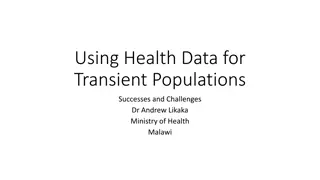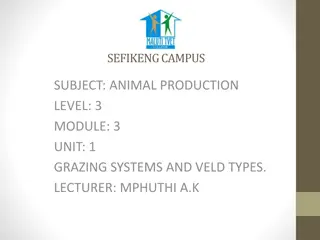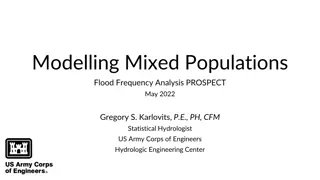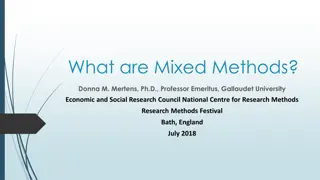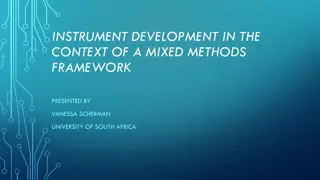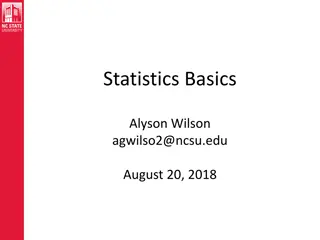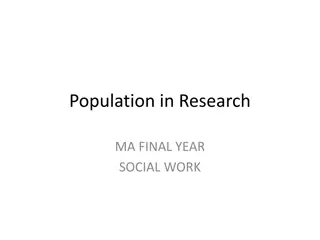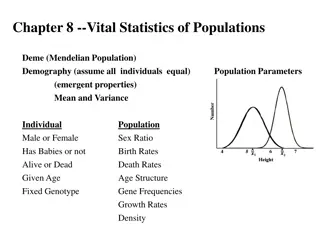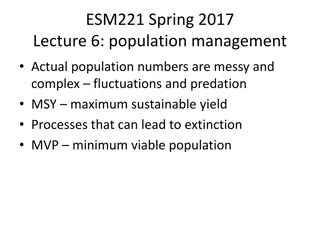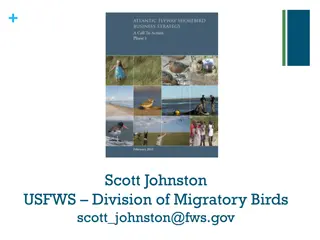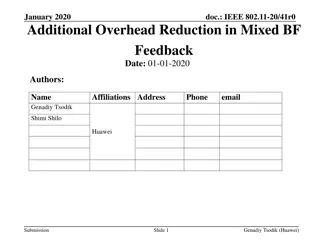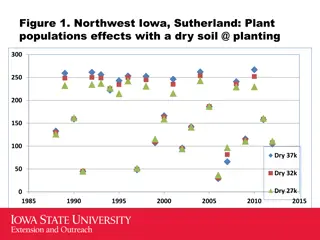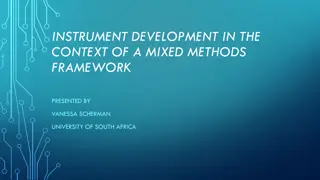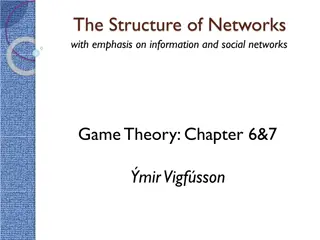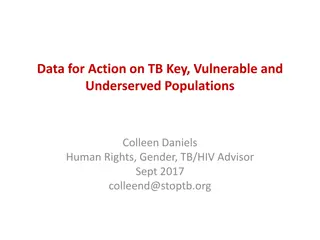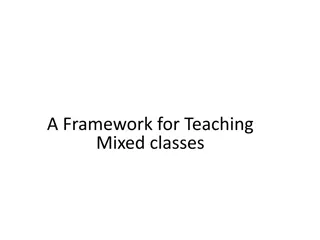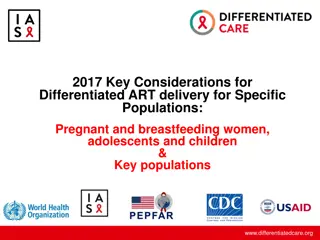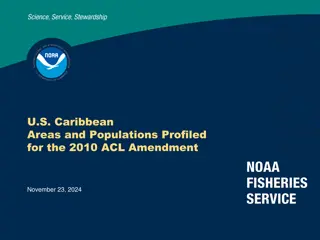CHILD PROTECTION COORDINATION IN MIXED SETTINGS SHARING GOOD PRACTICES
Explore the effective coordination mechanisms and best practices for child protection in mixed settings involving refugees, internally displaced populations, and other affected groups. Topics include similarities, differences, system strengthening, rights-based approaches, coordination responsibilit
2 views • 25 slides
Community-Based Participatory Research for Hard-to-Reach Populations: A Collaborative Approach
This presentation focuses on community-based participatory research for hard-to-reach populations, particularly on implementing harm reduction strategies for amphetamine-type stimulant (ATS) use. It addresses community engagement, outreach to hidden sites, societal perceptions of drug use, and the c
0 views • 25 slides
Vinz Global's Expertise in Mixed Reality Game Development
The impact of Vinz Global's mixed reality & game development initiatives is evident in the immersive and engaging experiences it delivers to players worldwide. By pushing the boundaries of technology and creativity, Vinz Global inspires imagination, fosters learning, and entertains audiences of all
4 views • 4 slides
HPE P10610-001 3.84TB DS SAS-12G SC Mixed Use SFF Value SAS G9 G10 SSD
New | HPE P10610-001 | 3.84TB DS SAS-12G SC Mixed Use SFF Value SAS G9 G10 SSD | \u2713 FREE and FAST Ground Shipping across the U.S. | Best Price Guaranteed\n\nProduct Link: \/\/ \/hpe-p10610-001-3-84tb-ds-sas-12g-sc-mixed-use-sff-value-sas-g9-g10-ssd\/
1 views • 1 slides
Enhancing Health Data Usage for Transient Populations in Malawi
Exploring the challenges and successes in using health data for transient populations in Malawi, this presentation covers migration trends, potential opportunities, and recommendations for data use and exchange. Case studies illustrate the complexities of managing health data for mobile populations,
1 views • 15 slides
Understanding Populations: Factors Affecting Growth and Dynamics
In the study of populations, factors like carrying capacity, density-dependent, and density-independent growth play crucial roles. Learn about estimating population size, dispersion patterns, growth rates, and more to understand how populations change over time.
0 views • 25 slides
Understanding Grazing Systems and Veld Types in Animal Production
This educational material covers various grazing systems, veld types, and the impact of different grazing animals on the vegetation. It discusses the importance of understanding veld types such as sweetveld, sourveld, and mixed-veld, and how factors like rainfall and soil texture influence these cla
0 views • 15 slides
Comparing Virtual Reality (VR), Augmented Reality (AR), and Mixed Reality (MR)
Virtual Reality (VR) immerses users in a digital environment using headsets, Augmented Reality (AR) overlays computer-generated content on the real world, and Mixed Reality (MR) combines digital content with real-world interactions through wearable devices like glasses. VR isolates users, AR enhance
1 views • 22 slides
Understanding Fractions: Basic Concepts and Operations
This comprehensive guide covers the fundamentals of fractions, including simplest forms, improper fractions, mixed numbers, and operations like addition and subtraction. Learn how to express fractions in their simplest form, convert improper fractions to mixed numbers, and perform arithmetic operati
0 views • 19 slides
Understanding Mixed Populations in Flood Frequency Analysis
In this presentation by Gregory S. Karlovits, P.E., PH, CFM, a statistical hydrologist from the US Army Corps of Engineers, the focus is on modelling mixed populations in flood frequency analysis. The key topics include revisiting the IID assumption, identifying mixed populations, and building model
0 views • 38 slides
Population Regulation in the Serengeti: An Interrupted Case Study
Explore the fascinating dynamics of population regulation in the Serengeti National Park through a series of slides covering factors influencing wildlife populations, such as bottom-up and top-down controls, density-dependent and independent factors, and the impact of diseases like rinderpest on mig
0 views • 20 slides
Understanding Mixed Economy: A Balanced Economic Model
Mixed economy combines elements of socialism and capitalism, allowing both public and private sectors to coexist. Government intervention aims to achieve a balance between individual initiatives and societal goals, promoting economic development while addressing inequalities. Features include econom
0 views • 15 slides
Trigonometric Problems: Mixed, Sine and Cosine Rules
This strand delves into trigonometric problems focusing on triangles with mixed information, exploring side lengths and angle measurements beyond right-angled triangles. It covers mixed problems, sine and cosine rules, applying area of any triangle, and Heron's formula. Engage in various exercises i
0 views • 28 slides
Understanding Populations in Homelessness and Poverty Presentation
This presentation by the Community Transportation Association of the Northwest, presented by Ryan Acker, delves into the importance of understanding homelessness and poverty. It highlights the challenges faced by vulnerable populations, such as homeless individuals, those living in poverty, people w
0 views • 53 slides
Utilizing DOE Low-Level & Mixed Low-Level Waste Disposal Contracts
EMCBC manages disposal and treatment contracts for Low-Level Waste (LLW) & Mixed Low-Level Waste (MLLW). Eligible users include DOE offices, prime contractors, and subcontractors. Services cover various waste types including radioactive materials, sealed sources, and TSCA-regulated waste. Specific c
0 views • 19 slides
Understanding Mixed Methods Research
Mixed methods research combines qualitative and quantitative data collection and analysis techniques to gain a more comprehensive understanding of a research topic. This approach allows researchers to triangulate data, enrich their findings, and provide a more nuanced interpretation of results.
0 views • 25 slides
Understanding Research Methods: Quantitative, Qualitative, and Mixed Approaches
This introduction provides an overview of qualitative, quantitative, and mixed methods research, highlighting key differences and various types of research approaches. It delves into exploratory, descriptive, and causal research methodologies, offering insights into problem discovery, data collectio
0 views • 50 slides
Instrument Development in the Context of Mixed Methods Framework
Explore the intricacies of instrument development within a mixed methods framework as presented by Vanessa Scherman from the University of South Africa. The overview delves into mixed methods research, methodological norms, and closing the loop in research processes. Gain insights into the pragmatic
2 views • 40 slides
Understanding Ecological Organization in the Environment
Explore the relationships among organisms within populations, communities, ecosystems, and biomes. Delve into the levels of organization in different environments, from populations to the biosphere. Learn about primary and secondary succession, pioneer species, and how environments form. Discover th
1 views • 19 slides
Understanding Basic Concepts in Statistics
This content covers fundamental concepts in statistics such as populations, samples, models, and probability distributions. It explains the differences between populations and samples, the importance of models in describing populations, and discusses various distributions like the normal and Poisson
0 views • 42 slides
Optimizing Antiretroviral Therapy Delivery for Specific Populations
Tailored antiretroviral therapy (ART) delivery models benefit stable patients by addressing inequities and involving key populations. Differentiated care extends to adolescents, pregnant women, and key populations, emphasizing psychosocial support. Transitioning between client categories is crucial
0 views • 6 slides
Understanding the Concept of Population and Unit Stock
The concept of population revolves around all organisms of the same species living in a specific area capable of interbreeding. It is essential to differentiate between sample populations and real populations to accurately study their attributes such as birth rates, death rates, and spatial dimensio
0 views • 15 slides
Understanding Research Populations in Social Work Studies
Research populations in social work studies play a crucial role in forming the basis for data collection and analysis. The definition, types (target and accessible populations), and challenges faced by researchers in testing entire populations are explored in this informative content.
0 views • 5 slides
Higher Premium Impact on Older and Low-Income Populations Under BCRA
Premium comparisons reveal that low-income, older adults face substantial increases in premiums under the Senate BCRA compared to the ACA. States with older, lower-income, and rural populations would experience over 100% higher average premiums under the BCRA. The BCRA could result in significant di
2 views • 5 slides
Corpus Creation for Sentiment Analysis in Code-Mixed Tulu Text
Sentiment Analysis using code-mixed data from social media platforms like YouTube is crucial for understanding user emotions. However, the lack of annotated code-mixed data for low-resource languages such as Tulu poses challenges. To address this gap, a trilingual code-mixed Tulu corpus with 7,171 Y
0 views • 10 slides
Understanding Vital Population Statistics and Demography
Exploring vital statistics of populations with a focus on Mendelian populations and demography, analyzing factors like sex ratio, birth rates, death rates, age structure, gene frequencies, growth rates, and population density. The content delves into emergent properties, mean and variance population
0 views • 9 slides
Population Management and Sustainable Harvesting Strategies
Actual population numbers exhibit complex fluctuations influenced by predation and other factors. Understanding concepts like Maximum Sustainable Yield (MSY) and Minimum Viable Population (MVP) can help in managing populations effectively. The concept of MSY ensures the maximum harvest of a renewabl
0 views • 32 slides
Understanding Special Populations Students in CTE Programs
Students who have special learning needs are considered special populations students in CTE programs. They include individuals with disabilities, economically disadvantaged individuals, single parents, English Language Learners, migrants, homeless individuals, youth in foster care, and youth with pa
0 views • 9 slides
Understanding Aquatic Epidemiology in Fish Populations
Aquatic epidemiology is a crucial branch of science that focuses on describing the health, diseases, and welfare of fish populations. It involves studying diseases in wild and hatchery-raised fish, identifying factors influencing disease occurrence, and conducting diagnostic investigations to mainta
0 views • 12 slides
Addressing the Decline of Shorebird Populations in the Atlantic Flyway
The presentation focuses on the concerning decline in shorebird populations within the Atlantic Flyway, emphasizing the urgency for increased conservation efforts. It highlights specific species affected by the decline and proposes a comprehensive business strategy involving multiple partners to rev
0 views • 10 slides
Expert Group Report on Mixed Customer Sites with Generation, Demand, and Storage
The report from the Expert Group on Mixed Customer Sites delves into the structure, meetings, and discussions regarding voltage criteria in relation to machine size, exploring challenges and proposing solutions for mixed site connections. The group emphasizes collaboration, thorough exchanges, and a
0 views • 8 slides
Techniques for Additional Overhead Reduction in Mixed Beamforming Feedback
Explore the properties of Mixed Beamforming (Mixed BF) and discover a method to reduce feedback size while maintaining high performance. Dive into the analysis of narrowband precoder properties to identify opportunities for size reduction without significant impact on total power. Enhance your under
0 views • 12 slides
Analysis of Plant Populations Effects in Various Regions of Iowa
The figures depict the impact of plant populations on yield in different regions of Iowa under dry soil conditions. The data spans several years, showing trends in plant populations and corresponding yields over time. Each figure focuses on a specific region, providing insights into agricultural pra
0 views • 8 slides
Instrument Development in Mixed Methods Framework by Vanessa Scherman
Mixed methods research presented by Vanessa Scherman from the University of South Africa explores the development of instruments within a mixed methods framework. The content covers an overview of mixed methods, methodological norms, instrumental development, and closing the loop. It discusses the i
0 views • 40 slides
Understanding Mixed Strategies in Game Theory
Explore the concept of mixed strategies in game theory through examples and insights on Nash equilibrium. Discover how players randomize their actions to create uncertainty and strategic advantages. Learn how mixed equilibria are applied in real-world scenarios and how they contribute to the stabili
0 views • 46 slides
Understanding and Prioritizing Tuberculosis Key Populations for Action
This collection of resources explores the identification, understanding, and prioritization of key populations affected by tuberculosis (TB), focusing on vulnerable and underserved communities. It delves into the framework for structuring programs, factors contributing to disease burden, and a range
0 views • 8 slides
Understanding Mixed Conditionals in English Grammar
Exploring the concept of mixed conditionals in English grammar, this comprehensive guide covers different structures and uses of mixed conditionals to discuss changes in the past affecting the present and vice versa. It also delves into alternative phrases to start conditional sentences, inverted co
0 views • 11 slides
Strategies for Teaching Mixed Classes: A Comprehensive Framework
Explore essential strategies and tools for effectively teaching mixed classes, ensuring both student populations benefit from instruction and contribute to the learning process. Discover non-negotiables, positive student interdependence, and insights on research findings, learning from both failures
0 views • 147 slides
Key Considerations for Differentiated ART Delivery for Specific Populations
This collection of resources discusses key factors in differentiated approaches to HIV care, focusing on pregnant and breastfeeding women, adolescents, children, and key populations such as people who inject drugs, sex workers, men who have sex with men, transgender individuals, and those in prisons
0 views • 14 slides
U.S. Caribbean Areas & Populations 2010 Profile: Amendment Overview
The presentation outlines mandates under NEPA and Magnuson-Stevens Act for considering affected populations in U.S. Caribbean areas. It covers demographics, poverty rates, and racial populations, focusing on St. Croix, St. Thomas/St. John, and Puerto Rico.
0 views • 38 slides




